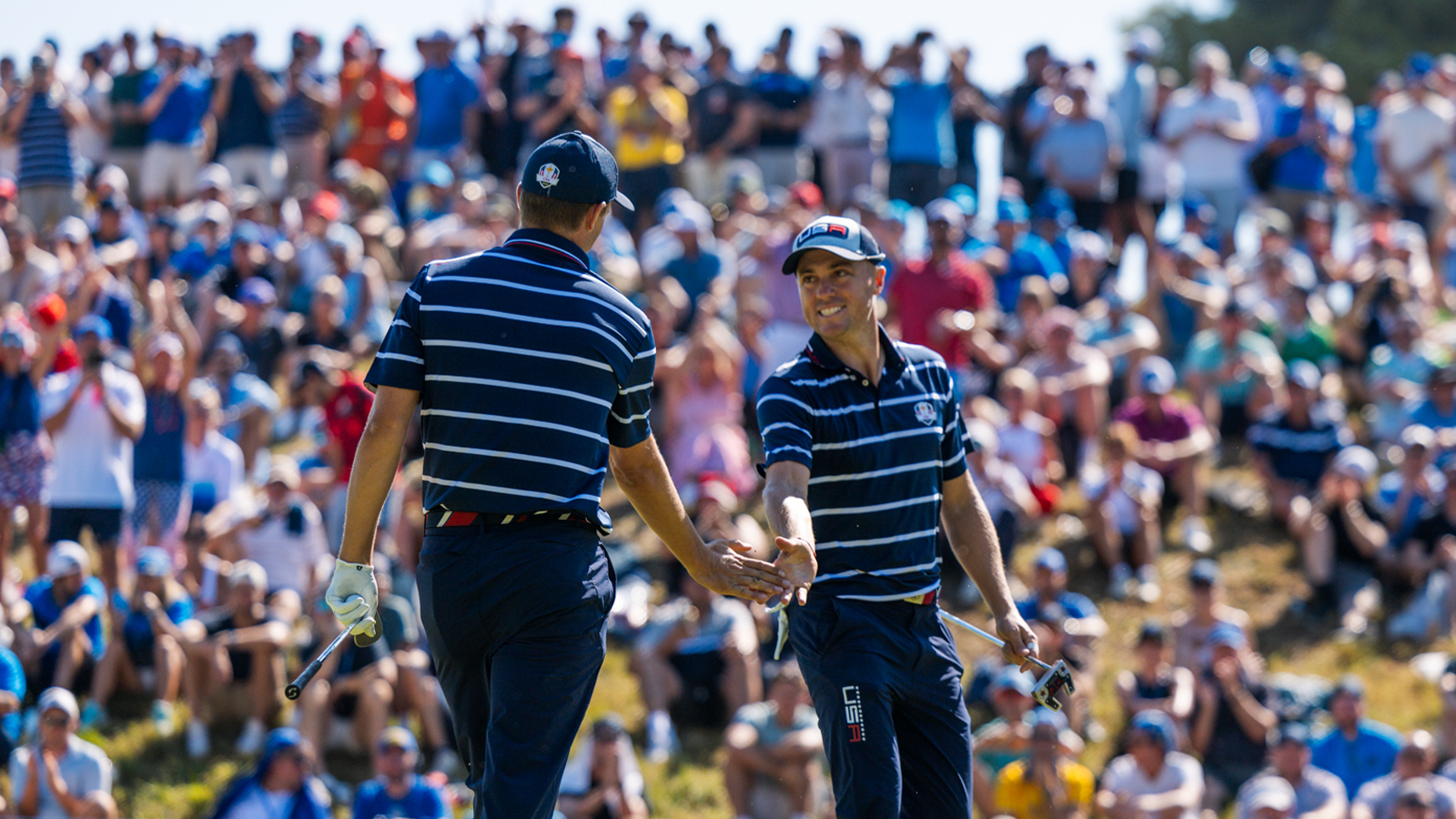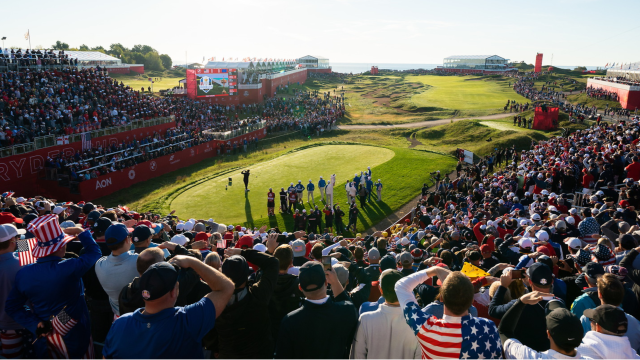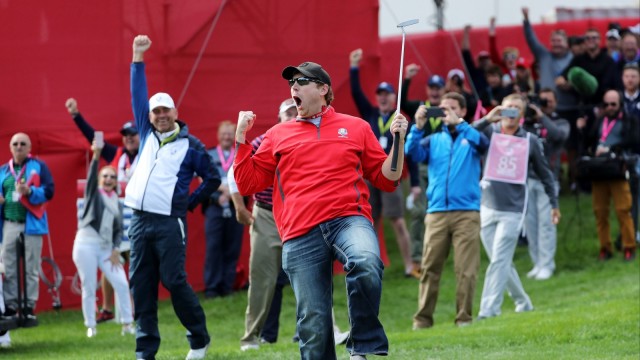Category - Major Events
Match Play 101: The Terms to Know During Ryder Cup Weekend
By Ryan Adams, PGA
Published on

Justin Thomas and Jordan Spieth celebrate winning a hole during the 2023 Ryder Cup at Marco Simone Golf & Country Club in Rome, Italy. (Matt Hahn)
With the Ryder Cup underway in Rome, a lot of people around the world are tuning in — millions from across Europe and the United States are watching the action from Marco Simone Golf & Country Club.
While watching, people may be wondering — what does “all-square” mean? Or “dormie”? How about the difference between four-ball and foursomes?
Not to worry as we have you covered with a Ryder Cup and match play glossary below. Keep it handy as you tune in this weekend!
Competition is scored by number of holes won rather than strokes in an 18-hole round. Scores are not kept, instead keeping track of how many holes each player has won. This is the format used in the Ryder Cup and major amateur competitions.
Four-Ball
In four-ball, each member of a two-man team plays his own ball, so four balls are in play on every hole. Each team counts the lowest of its two scores on each hole, and the team whose player has the lowest score wins the hole. If the low scores are tied, the hole is halved.
Foursomes
In foursomes, each two-man team plays one ball per hole with the players taking turns until each hole is complete. Players alternate hitting tee shots, with one leading off on odd-numbered holes, and the other hitting first on even-numbered holes. The team with the low score on each hole wins that hole. If their scores are tied, the hole is halved.
Singles
In singles, each match features one player from each team. The player with the lower score on each hole wins that hole. If their scores are tied, the hole is halved.
All-square
When an individual match or the entire competition is tied. In other words, Player A has won four holes and Player B has won four holes. The score is said to be all-square, not 4-4.
Up/Down
Used to describe which player is leading or trailing in a match. In other words, if Player A has won four holes and Player B has won two holes, then Player A is considered 2-up, or Player B is 2-down.
Through
Used in conjunction with up/down. In other words, if a player is "2-up through 10," he leads by two holes with 10 holes complete.
Dormie
When one player is up by the exact number of holes that remain. The best the player who trails can do is tie. In other words, Player A is 3-up after 15 holes, meaning there are only three holes remaining.
Final Scoring
If a match goes 18 holes, the final score is simply all square for a tie, 1-up or 2-up. But most matches often end before 18 holes are complete. For instance, if Player A is 3-up with two holes to play, then Player B cannot catch up. Therefore the match is complete, and the final score would be 3-and-2. The first number represents the lead, while the second number signifies how many holes remain.
Halve:
When both players get the same score on a hole. Or, when a complete 18-hole match ends up all-square. In team competitions, each team gets a half point for the match.
Concede
Unlike tournament play, in match play a player can give his opponent a shot. This usually happens on a short putt and helps speed up play. It can also occur when one player has hit into the water or out-of-bounds and realizes he will lose the hole.
Points
The three days of the matches consist of 28 total matches, each of which is worth one point. There are no extra holes in Ryder Cup matches. Should the two sides be tied after 18 holes, each side earns a half point.
For the Win
To win the Ryder Cup outright, a team must collect 14 ½ of the 28 points available. In the case of a 14-14 tie, the winning team from the previous Ryder Cup retains the trophy.


